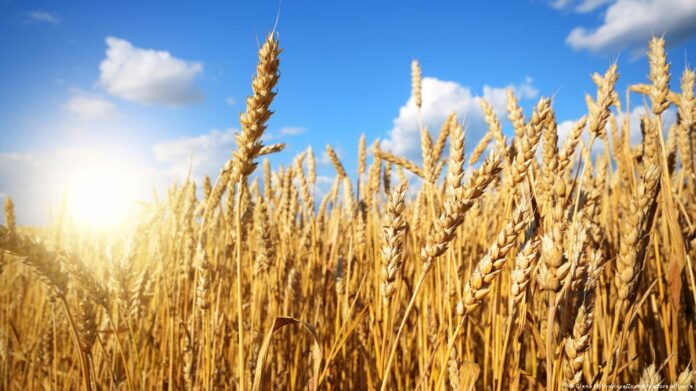In recent days, global wheat prices have experienced a sharp surge, sending shockwaves through international markets. This dramatic price increase comes in the wake of a concerning announcement from Russia, indicating its willingness to treat ships en route to Ukrainian ports as potential military targets. The tension has escalated even further as Moscow pulled out of a UN deal that previously ensured safe passage for grain shipments crossing the Black Sea.
For the past three nights, Russia has reportedly launched airstrikes on Ukraine’s grain facilities in Odesa and other cities, leading to devastating consequences for civilians and the nation’s crucial grain export infrastructure. The situation is reaching a critical juncture, with both sides exchanging accusations and threats, raising concerns about potential attacks on civilian ships in the region.
The White House has pointed fingers at Russia, suggesting that the Kremlin plans to target civilian vessels and subsequently blame Ukraine for the attacks. This has further intensified international apprehensions and prompted an immediate 8.2% surge in European wheat prices and a 5.4% rise in corn prices.
The stakes are high, with US wheat futures jumping 8.5%, marking the most significant increase since Russia’s invasion of Ukraine in February 2022. To add to the complexity, President Vladimir Putin expressed a willingness to rejoin the international grain agreement on the condition that his demands are met, including the lifting of sanctions on Russian grain and fertiliser sales and the reconnection of Russia’s agricultural bank to a global payment system.
However, actions speak louder than words, and as Russia continues its airstrikes on Black Sea coastal cities for the third consecutive night, the situation remains tense and unpredictable. The toll on human life is rising, with over 20 people wounded in Odesa and Mykolaiv, including children. Residential areas are also taking a hit, with reports of apartment blocks being targeted and severely damaged.

Russian-occupied Crimea has also faced attacks, with a teenage girl losing her life due to a drone strike on administrative buildings. This follows a suspected Ukrainian drone attack on a bridge connecting the occupied peninsula to southern Russia and the closure of a key motorway due to explosions at a nearby munitions depot.
The heart of the crisis lies in the now-abandoned Black Sea grain deal that provided the UN’s World Food Programme with much-needed wheat to support countries facing acute hunger, such as Ethiopia, Yemen, and Afghanistan. This deal was a lifeline for those regions, and with Russia’s exit from the agreement and the targeting of Ukraine’s grain infrastructure, vulnerable populations are at risk.
The situation is complex and has far-reaching implications for global food security and geopolitics. It is crucial for international actors to step in and find a diplomatic resolution to the escalating crisis. As wheat prices soar, fears of food insecurity and social instability in developing countries are mounting.
The international community must act swiftly to protect civilian ships, ensure the safe transportation of essential grain, and prevent further escalation of the conflict. The future of the region and its people is at stake, and the world is watching closely as events continue to unfold. Only through collective efforts and genuine dialogue can a path to peace and stability be paved for Ukraine and the international community.





